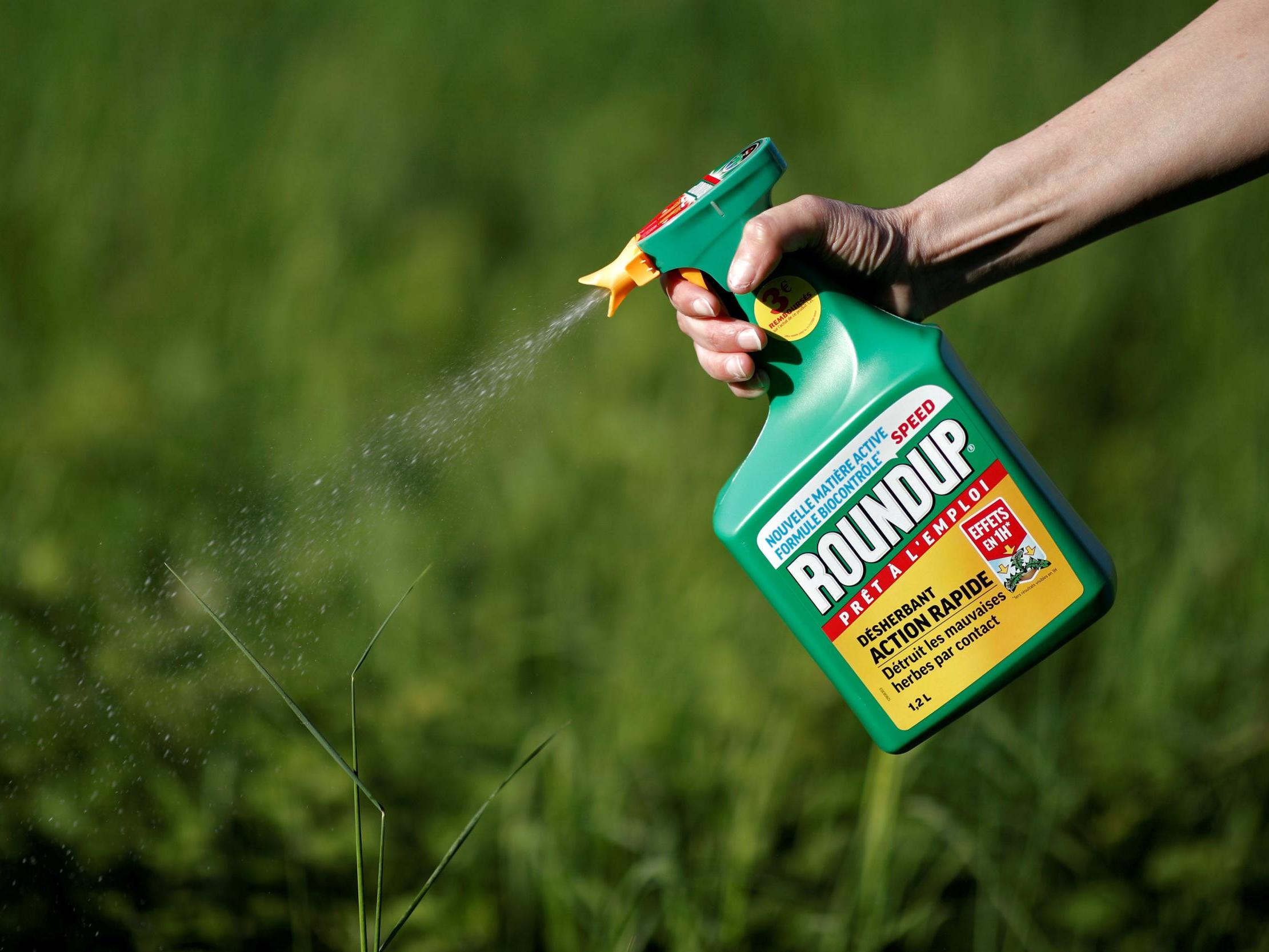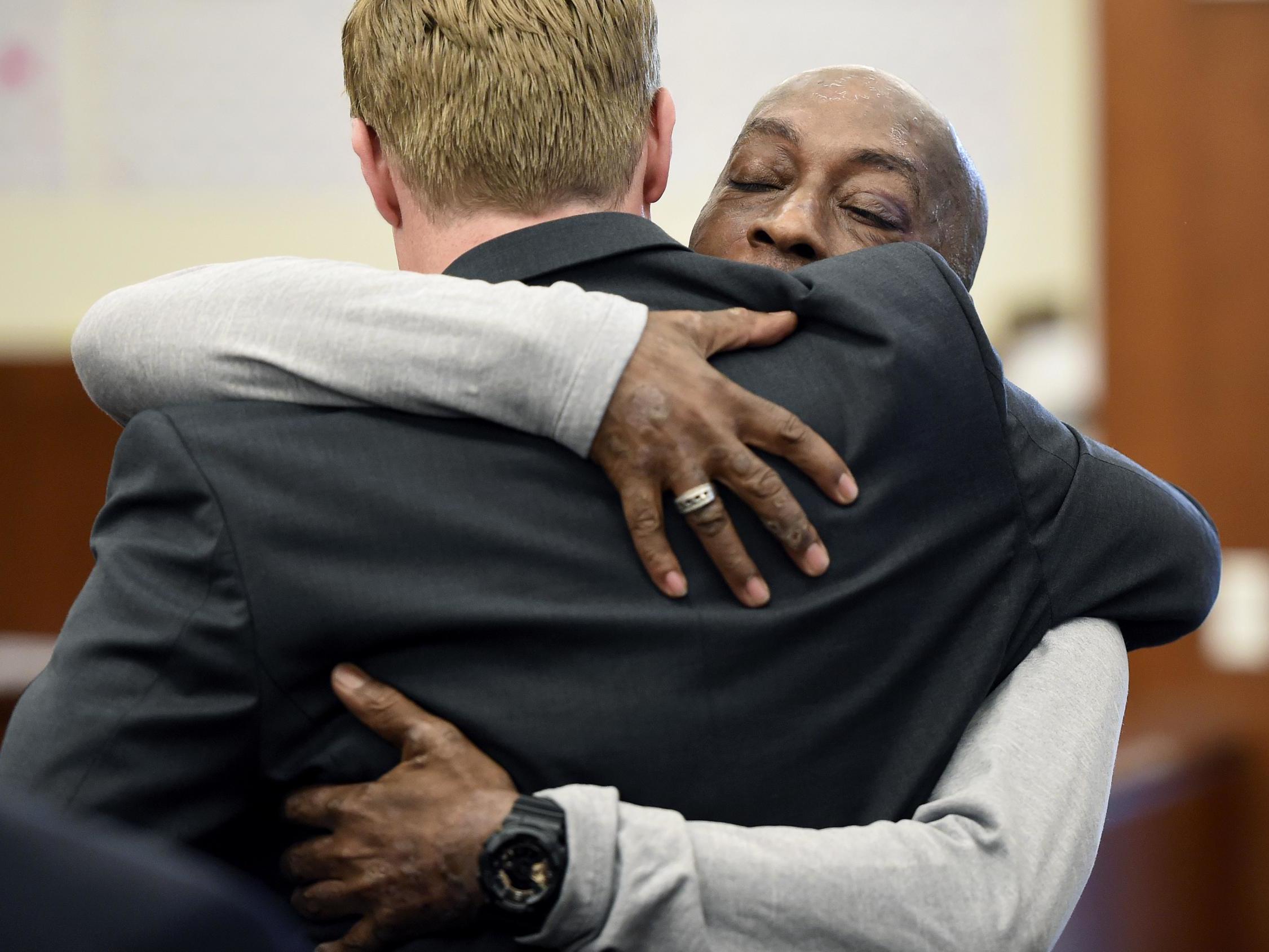Roundup weedkiller could be pulled from British shelves after $289m US lawsuit finds link to cancer
Homebase reviewing weedkiller products after terminal cancer sufferer awarded £226m compensation in US

Your support helps us to tell the story
From reproductive rights to climate change to Big Tech, The Independent is on the ground when the story is developing. Whether it's investigating the financials of Elon Musk's pro-Trump PAC or producing our latest documentary, 'The A Word', which shines a light on the American women fighting for reproductive rights, we know how important it is to parse out the facts from the messaging.
At such a critical moment in US history, we need reporters on the ground. Your donation allows us to keep sending journalists to speak to both sides of the story.
The Independent is trusted by Americans across the entire political spectrum. And unlike many other quality news outlets, we choose not to lock Americans out of our reporting and analysis with paywalls. We believe quality journalism should be available to everyone, paid for by those who can afford it.
Your support makes all the difference.Roundup weedkiller could be pulled from British shelves after a US court ruled the chemical contributed to a man’s terminal cancer.
Homebase, one of the UK’s largest DIY retailers, was the first retailer to announce it is reviewing the sale of Roundup and Ranger Pro in the wake of the landmark case in California, and others are expected to follow.
“We have confirmed that we will be reviewing our range of weedkiller products,” a spokesperson for Homebase said, while B&Q had already started a broader review of garden products.
Dewayne Johnson was awarded $289m (£226m) on Friday by a state jury, who found manufacturer Monsanto had failed to adequately warn of the risks of using Roundup, which contains the world’s most widely-used herbicide, glyphosate.
The school groundsman’s lawyers said he was diagnosed with non-Hodgkin’s lymphoma in 2014, having used Roundup and a similar Monsanto product, Ranger Pro, in large quantities while working.
The jury also found that company officials acted with “malice and oppression” in their selling of the product despite its risks being known.
Monsanto vice president Scott Partridge said hundreds of studies showed the herbicide does not cause cancer and said the company would appeal the verdict to “vigorously defend this product”.
He told the Press Association: “Roundup has been safe for four decades and will continue to be safe. There is no credible scientific evidence that demonstrates otherwise.
“It is completely and totally safe and the public should not be concerned about this verdict, it is one that we will work through the legal process to see if we can get the right result. The science is crystal clear.”

Labour deputy leader Tom Watson said on Twitter that the verdict has “huge implications for the food chain”.
Roundup is one of the country’s most popular weedkiller brands, while glyphosate herbicides are the most widely used herbicide in UK agriculture.
Environmentalists say the weedkiller is linked to cancer, although the claim is strongly denied by manufacturers and the EU has approved the chemical for use.
In 2016, a joint report by the World Health Organisation (WHO) and the UN said that, while there was “some evidence of a positive association between glyphosate exposure and risk of non-Hodgkin’s lymphoma” in some studies, the only large study of high quality found “no evidence of an association at any exposure level”.
It concluded that glyphosate “is unlikely to pose a carcinogenic risk to humans from exposure through the diet”.
It came after the France-based International Agency for Research on Cancer, which is part of the WHO, said in 2015 that glyphosate was a “probable human carcinogen”.
In 2017 the European Union extended the licence for use of glyphosate for five years.
The court heard Mr Johnson used the weedkiller in large amounts while working in the San Francisco Bay Area school district.
When using the product in windy conditions it would come into contact with his face, while on one occasion he was left soaked in the weedkiller when a hose broke.
The jury in San Francisco found that Roundup was a “substantial factor” in Mr Johnson’s illness and that the company should have provided a label warning of the potential health hazard.
Jurors also found that the potential risks of the product were known by the scientific community and Monsanto failed to “adequately warn” of the danger.
“I’m glad to be here to be able to help in a cause that’s way bigger than me,” Mr Johnson said at a news conference after the verdict was announced.
His case was the first filed by a cancer patient against Monsanto to reach trial and lawyers said his victory may set the precedent for many others.
Brent Wisner, Mr Johnson’s lead trial lawyer, said around 4,000 other cases had been filed against the chemicals giant in the US alone.
Mr Partridge said that more than 800 scientific studies and reviews and conclusions by regulators in the US and around the world “support the fact that glyphosate does not cause cancer”.
He added: “The jury made a decision, but the decision that a jury or a judge makes has to be based on the weight of the evidence and the overwhelming weight of the evidence that went in the trial was that science demonstrates glyphosate is safe, there’s no credible evidence to the contrary.
“I understand that we all have sympathy for Mr Johnson, certainly the jury had sympathy for Mr Johnson, but that should not change the manner in which legal decisions are made. They should be made on the weight of the evidence.”
According to a 2017 study of government data by Oxford Economics, 5.4 million acres of farmland across Britain are treated with glyphosate annually.
The chemical is used to prepare fields for planting and to make harvesting easier.
Farmers warn that banning the chemical could cut crop yields by more than 10 per cent, costing the economy hundreds of millions of pounds.
A government spokesperson said: “The government’s priority is the protection of people and the environment. Decisions on the use of pesticides should be based on a careful scientific assessment of the risks.
“Once outside the EU, we will continue to make decisions on pesticides based on the best available science.”
Additional reporting by agencies
Join our commenting forum
Join thought-provoking conversations, follow other Independent readers and see their replies
Comments